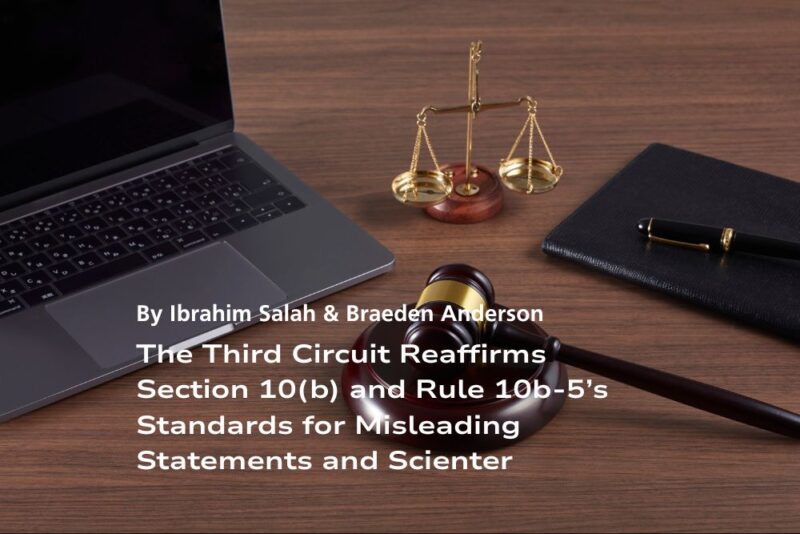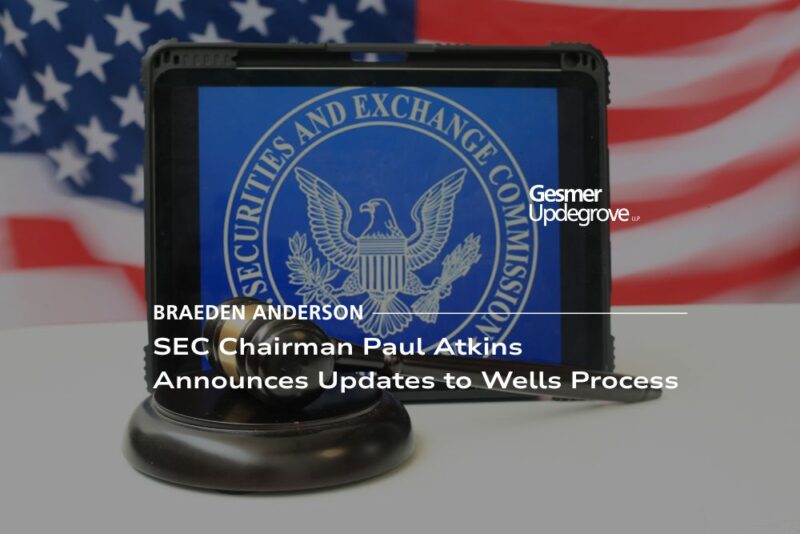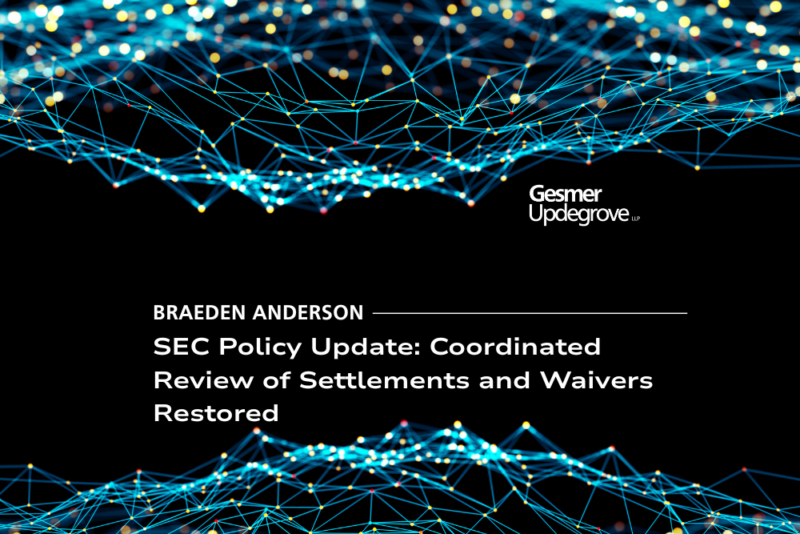
In the business world, a company’s proprietary information is one of its most valuable assets. For instance, a company’s product concept, financial data, client list, or development strategy all have enormous value that is particular to each company. If a company’s sensitive information is disclosed without protection, it can be difficult or impossible to regain control. This is where a non-disclosure agreement (NDA) becomes essential.
An NDA is a legally binding agreement that creates a confidential relationship between the parties, allowing them to share information securely. While the mechanics of an NDA may seem simple, it is critical to set forth clear confidentiality expectations and obligations for the parties involved. With the proper protections, you can share important details about your company, including its operations, strategies, and intellectual property. This ultimately helps maintain your company’s growth trajectory and provides a strong foundation for building trust with customers, vendors, and employees.
When is an NDA Necessary?
While an NDA serves as an invaluable tool for protecting confidential information in most scenarios, their usefulness depends on the situation. For example, most venture capital firms will not sign an NDA, especially during early-stage fundraising discussions. Presenting an NDA to a VC firm can even make your company appear inexperienced, as it could signal a lack of familiarity with standard VC practices.
As another example, there are many instances where confidentiality protections are already built into a boarder agreement with a third party. When working with outside service providers, manufacturers, and other third parties, your company may have already entered into a master services agreement, manufacturing agreement, or similar contract. If the confidentiality terms in such agreement are comprehensive, a separate NDA may not be necessary. However, it will still be important to review the existing confidentiality terms to ensure they provide adequate coverage for the situation at hand.
Thus, it is key to understand when an NDA is appropriate. Below are some of the most common scenarios where an NDA is necessary.
Employees, Contractors, and Advisors
An NDA is critical when hiring employees or contracting with advisors or independent contractors, especially those with access to sensitive company information.
Without an NDA, employees, contractors, and advisors have the ability to use a company’s sensitive information for their own benefit, such as developing a competitive product or service. This can harm the business, and as such, all these individuals should enter into an NDA with the company.
Moreover, these individuals often develop additional intellectual property for the company or add value to the company’s pre-existing intellectual property. To account for this, these types of NDAs will often include terms that assign the developed intellectual property or any improvements to the company so that the company protects the value of such intellectual property. If these terms are not included in the NDA, they should be included in a separate assignment of inventions agreement for employees or contractors or an advisor agreement, as applicable.
Mergers, Acquisitions, and Strategic Partnerships
Another common scenario where NDAs are useful is in the context of mergers, acquisitions, joint ventures, or other strategic business partnerships. Sensitive data is often exchanged well before any final agreement is signed, so it is important to have an NDA in place with any prospective party before engaging in substantive discussions about selling your company, forming a joint venture, or working with another business, especially if those discussions involve a competitor. Having an NDA in place early on before the parties exchange any confidential information allows both parties to share sensitive information with legal protections. In this context, parties tend to exchange information such as financial details, business plans, employee and customer lists, and unique technologies.
How to Draft an Effective NDA
The strength of an NDA largely depends on how well it is drafted and negotiated. A poorly written NDA can leave your company exposed to potential disclosure of commercially sensitive information. A strong NDA should be clear, concise, and specific, covering key elements such as the following:
Mutual or One-Way NDA:
At the outset, it is helpful to confirm whether both parties will disclose and receive confidential information or whether one party will unilaterally disclose and the other party will receive confidential information. This will inform the drafting and negotiation of the NDA terms. For example, if your company is the sole disclosing party, you likely would want stricter confidentiality obligations on the receiving party. If both parties are disclosing confidential information, then you likely would want to balance imposing strict obligations on the other party while being aware that your company will also be subject to such obligations. These factors change the negotiating dynamics of the NDA.
Contact Us Today
Definition of Confidential Information:
An NDA should explicitly outline and define what constitutes confidential information. This helps people avoid misunderstandings about what information is protected. An NDA should also clarify what types of information will not be considered confidential information. For example, common exceptions to the definition of confidential information include information that is already known to the public (through no fault of the receiving party) or information that is independently developed by the receiving party without reference to the confidential information.
Ability to Disclose Pursuant to Legal Requirements:
The receiving party should have the ability to disclose the confidential information as required by law, regulation, or judicial process. Typically, this will require that the receiving party provide written notice of such required disclosure to the disclosing party (to the extent legally permissible) so that the disclosing party can seek a protective order to prevent disclosure.
Obligations of the Receiving Party:
An NDA should specify the duties of the party receiving the confidential information. This may include restrictions on how the information can be used and requirements for safeguarding it. Additionally, NDAs usually permit the parties to share the confidential information with certain representatives (i.e., a company’s directors, officers, employees, attorneys, etc.). If that is the case, the receiving party should be required to inform their representatives to abide by such confidentiality obligations, and the receiving party should be responsible for any breach of such confidentiality obligations by their representatives.
Duration of Confidentiality:
Consider how long the information should remain confidential and clarify this in the NDA. This will depend on the nature of the information that is shared and whether your company is the disclosing party or the receiving party. Some information may need protection for a long time compared to other information that becomes stale more quickly. Also, if your company is disclosing most or all the confidential information under the NDA, you likely want the term of the NDA to be longer. On the other hand, the recipient of the confidential information likely would want a shorter term to not be subject to lengthy, ongoing obligations. Regardless of the term of the NDA, confidentiality obligations related to trade secrets should continue indefinitely or else the company risks trade secret protection.
Feedback:
If applicable, specify that any feedback, suggestions, or ideas provided by the receiving party shall be considered the disclosing party’s confidential information and can be used by the disclosing party without restriction.
Remedies for Breach:
The most common and effective remedy for breaching an NDA is to require the breaching party to comply with its terms and cease any further disclosure of confidential information. As such, an NDA should provide for injunctive relief to allow for a court to quickly order the breaching party to cease disclosure.
While these are common key terms for an NDA, these terms may vary depending on context and the outcome of the NDA negotiation. What works for one situation may not be suitable for another. For example, a technology company’s NDA with its employees will differ from a consulting firm’s NDA with a potential acquiror because of the nature of the information at hand and the different dynamics of the situation. At Gesmer, we draft and negotiate NDAs that fit the specific needs of our clients, ensuring your company is fully protected.
When Should You Consult an Attorney for an NDA?
Many people may assume that NDAs are simple agreements that do not require legal help. However, failing to consult an attorney could risk the disclosure of sensitive business information. An attorney can help you ensure that your NDA is comprehensive, clear, and legally enforceable based on your company’s situation.
Conclusion
When you are about to share valuable and commercially sensitive information about your company, it is crucial to ensure that the right protections are in place. A strong NDA provides peace of mind, safeguards your intellectual property, and establishes trust in business relationships.
If you have questions about NDAs or would like an attorney to review an NDA, please contact our team. We are happy to discuss your needs and provide the legal guidance necessary to protect your company.
Meet the Team
Check out our latest publications:
- SEC CHAIR OUTLINES PLAN TO BRING CLARITY TO DIGITAL ASSET OVERSIGHT

- CRYPTO TAX: YEAR-IN-REVIEW

- The Third Circuit Reaffirms Section 10(b) and Rule 10b-5’s Standards for Misleading Statements and Scienter

- SEC Chairman Paul Atkins Announces Updates to Wells Process

- SEC Policy Update: Coordinated Review of Settlements and Waivers Restored

- SEC Provides Key Update on Treasury Clearing Rule Implementation

